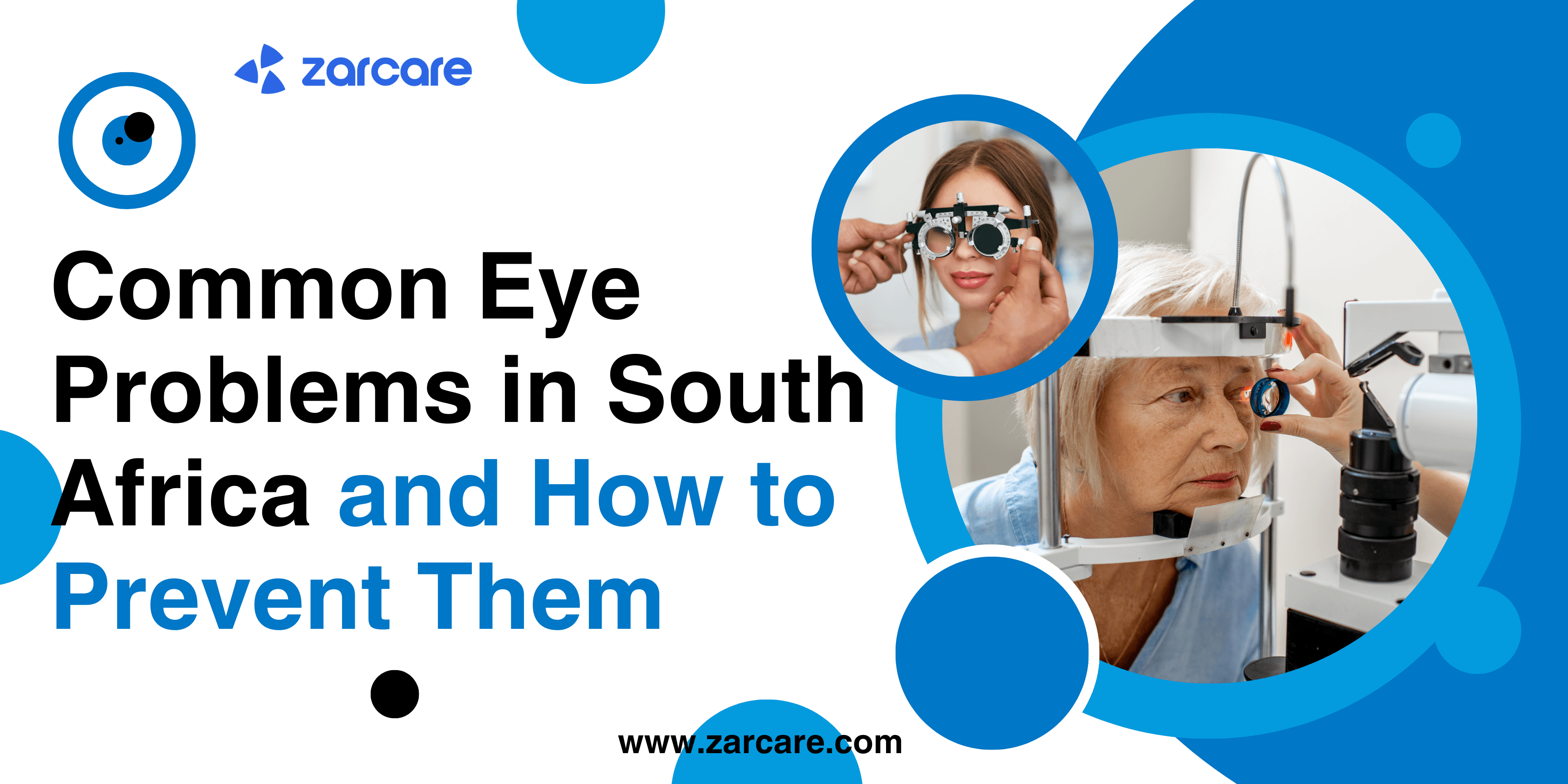Common Eye Problems in South Africa and How to Prevent Them

Eye health is a vital component of overall well-being, yet many South Africans face various eye problems that can significantly impact their quality of life. Understanding these common issues, how to identify them, and the steps for early treatment and prevention are essential for maintaining good vision and eye health. Identification: Cataracts cause the lens of the eye to become cloudy, leading to blurred vision. Practical signs include difficulty seeing at night, sensitivity to light, and seeing “halos” around lights. Early Treatment: Regular eye exams can detect cataracts early. Surgery to replace the cloudy lens with an artificial one is a common and effective treatment. Prevention: Wear sunglasses that block UV rays, avoid smoking, and manage health conditions like diabetes. Identification: Glaucoma often has no early symptoms but can be identified through increased intraocular pressure during an eye exam. Later stages may include loss of peripheral vision. Early Treatment: Medications, laser treatment, or surgery can help reduce eye pressure and prevent further damage. Prevention: Regular eye exams are crucial, especially if you have a family history of glaucoma. Identification: This condition affects people with diabetes and can be identified by symptoms such as floaters, blurred vision, and difficulty seeing colours. Regular retinal screenings are essential. Early Treatment: Managing blood sugar levels, blood pressure, and cholesterol can slow the progression. Laser treatment and surgery are options for advanced cases. Prevention: Control diabetes through diet, exercise, and medication. Regular eye exams are vital for early detection. Identification: AMD affects central vision. Symptoms include difficulty reading, recognising faces, and seeing fine details. An Amsler grid test can help detect early signs. Early Treatment: While there is no cure, treatments like anti-VEGF injections can slow progression. Supplements with vitamins C and E, zinc, and copper may also help. Prevention: Avoid smoking, maintain a healthy diet rich in leafy greens and fish, and protect your eyes from UV light. Identification: Symptoms include blurred vision, headaches, and eye strain. These can be easily identified through a standard eye exam. Early Treatment: Corrective lenses (glasses or contact lenses) or refractive surgery can correct these errors. Prevention: Regular eye exams to update prescriptions and detect vision changes. Identification: Symptoms include a stinging or burning sensation, redness, and blurred vision. Environmental factors and prolonged screen time can exacerbate these symptoms. Early Treatment: Artificial tears, lifestyle changes, and medications can help manage dry eyes. Prevention: Take regular breaks from screens, use a humidifier, and stay hydrated. Schedule comprehensive eye exams at least every two years, or more frequently if you have risk factors for eye diseases. Early detection through regular check-ups can prevent many eye problems from progressing. Wear sunglasses that block 100% of UV rays to protect your eyes from harmful sun exposure. Use protective eyewear during activities that pose a risk of eye injury. Maintain a balanced diet rich in fruits, vegetables, and omega-3 fatty acids. Regular exercise and avoiding smoking can also contribute to better eye health. Properly manage chronic conditions such as diabetes and hypertension to reduce the risk of developing eye diseases like diabetic retinopathy and glaucoma. Follow the 20-20-20 rule: every 20 minutes, look at something 20 feet away for at least 20 seconds to reduce eye strain from prolonged screen use.Common Eye Problems
1. Cataracts
2. Glaucoma
3. Diabetic Retinopathy
4. MAge-Related Macular Degeneration (AMD)
5. Refractive Errors
6. Dry Eye Syndrome
Steps to Early Treatment and Regular Doctor Visits
1. Regular Eye Exams
2. Protective Eyewear
3. Healthy Lifestyle
4. Manage Chronic Conditions
5. Limit Screen Time
By understanding these common eye problems and taking proactive steps to prevent them, individuals in South Africa can maintain better eye health and enjoy a higher quality of life. Regular visits to an eye care professional are essential for early detection and effective management of eye conditions.
